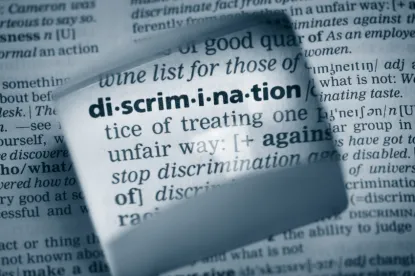Where is the impact of alleged employment discrimination? That is the question when evaluating whether a remote worker can assert claims under the New York State Human Rights Law (“NYSHRL”) and New York City Human Rights Law (“NYCHRL”), according to a recent decision by U.S. District Judge Edgardo Ramos. Relying on state law, Judge Ramos concluded that the basis for subject matter jurisdiction has not changed during the COVID-19 pandemic and remains grounded in New York’s “Impact Test,” meaning courts will look to where the impact of alleged discriminatory conduct was felt. Thus, regardless of whether an employer is located in New York, the anti-discrimination laws are intended to protect employees who live or work in New York.
In Shiber v. Centerview Partners, LLC, No. 21 Civ. 3649 (ER), (S.D.N.Y. Apr. 20, 2022), plaintiff began working for a company headquartered in New York City in July 2020, but due to COVID-related restrictions, she worked exclusively from her New Jersey home. Shortly thereafter, she requested an accommodation relating to a medical condition but was subsequently terminated based on the employer’s assessment that she was unable to perform the essential functions of the job. Plaintiff filed suit in the Southern District of New York asserting claims under the NYSHRL, NYCHRL, and the New Jersey Law Against Discrimination (“NJLAD”). The court dismissed plaintiff’s NYSHRL and NYCHRL claims, finding that, notwithstanding that the employer is based in New York City, the fact that plaintiff only worked remotely from New Jersey and never set foot in the employer’s New York City office barred any action under the New York laws. See also Hoffman v. Parade Pub., 15 N.Y.3d 285, 291 (2010) (affirming trial court’s dismissal of NYSHRL and NYCHRL claims where there was no “impact” of alleged discriminatory conduct within the state).
Reaching that decision, the court rejected plaintiff’s argument that the COVID-19 pandemic changed everything. The court noted that New York courts had already considered and declined to apply the pandemic’s influence on workplaces and possible effects on the “impact test.” For example, the Appellate Division previously rejected a plaintiff’s argument that the rise of remote work during the pandemic ought to compel New York to extend its statutory protections to all discriminatory conduct occurring in the context of New York employment, even if the impact is felt out of state, holding that the “impact test” remains a clear directive. Pakniat v. Moor, 192 A.D. 596, 597 (1st Dept. 2021).
Other Jurisdictions, Other Rules
Employers and employees alike should be aware that the New York approach is not universal. For example, courts in the District of Columbia use a more inclusive approach and focus on where the alleged discrimination occurred. A claim under the District of Columbia Human Rights Act can be brought either when the effects of the alleged discrimination are felt within the jurisdiction – like in New York – or when the alleged adverse employment action originated there – in contrast to New York. See Cole v. Boeing Co., 845 F. Supp. 2d 277, 284 (D.D.C. 2012).
California takes a similar approach, requiring a plaintiff asserting claims under its Fair Employment and Housing Act (“FEHA”) to show either that the employee worked in California, or that alleged employer misconduct took place within California. Noble v. Dorcy Inc., No. 219-CV-08646-ODW, 2020 WL 4227295, at *3 (C.D. Cal. July 23, 2020). Courts, however, will not apply FEHA uniformly to all California-based employers, merely because the company is located there. Id.
An even more complicated approach has emerged in New Jersey. There, the Appellate Division issued a complex decision holding that an out-of-state employee working for a New Jersey-based employer may be able to assert claims under the NJLAD, subject to a fact-specific and rather technical choice-of-law analysis. See Calabotta v. Phibro Animal Health Corp., 460 N.J. Super. 38, 64, 213 A.3d 210, 224 (App. Div. 2019).
The Future of Employer Liability for Discrimination Against Remote Workers
Barring legislative changes, the ability of a plaintiff to assert employment discrimination claims under New York’s otherwise broad human rights laws remains limited to those who live or physically work within the jurisdiction. Other places may permit non-residents who do not work within the jurisdiction to commence actions under their state and local laws, at least if the alleged bad actor or decision-maker is located within the jurisdiction. But every state and municipality must impose some jurisdictional limitation, even in an increasingly virtual world.





 />i
/>i

